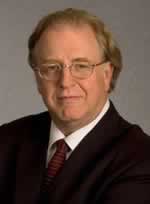 Commentary
Commentary
Inside the First Amendment
By Gene Policinski
First Amendment Center vice president/executive director
What’s in the gubernatorial water supply out there, when it comes to matters of the First Amendment?
Just 45 words setting out five essential freedoms as part of the Bill of Rights, the amendment has been around for – as of next Dec. 15 – 220 years. But several newly inaugurated state leaders have stumbled in word or fact over how to live up to that guarantee of our basic rights.
Alabama’s new Gov. Robert Bentley (R), minutes after being sworn in, told a church crowd on Jan. 17 that non-Christians were not his brothers and sisters — creating concerns that non-Christians wouldn’t receive equal treatment from state government. Two days later, he met with leaders of other faiths and then told reporters that “if anyone from other religions felt disenfranchised by the language, I want to say I am sorry. I am sorry if I offended anyone in any way.”
Journalists and others in Florida are complaining that new Gov. Rick Scott (R) is excluding the public from traditionally open events, such as a post-inaugural party and formal dinners at the governor’s mansion. News reports also say he allows only select reporters to attend events, and responds slowly or not at all to public-records requests.
In an Associated Press story this week, Bob Rathgeber of The News-Press of Fort Myers, Fla., said former health-care executive Scott appeared to want to continue operating as if he were still in the private sector.
Earlier this month, new Rhode Island Gov. Lincoln Chafee (I) banned state employees from appearing as guests on talk-radio shows. Calling such shows divisive, Chafee said they sought only profits and ratings, offered more entertainment than news, and were a diversion from state business. The governor and other state employees will still respond to individual reporters, he said, and even to talk-show hosts if they appear at his press conferences.
And right after the New Year, new Ohio Gov. John Kasich (R) retreated from original plans to hold a family-and-friends-only inaugural party and swearing-in ceremony at his home after running into widespread criticism. Earlier, Kasich had told reporters that the events were closed to press and public because guests “don’t want you sticking a notebook and a pencil in their face” and chronicling what they eat and drink or whether they can dance well.
Whew, that’s a lot of closed doors — and perhaps closed minds – against the ideas and ideals that (1.) a free press represents the public (also known as voters, taxpayers and citizens), and (2.) that church-state separation means public officials and the government ought not publicly to endorse or criticize one faith over another, or give the impression that private faith will distort public policies.
Of course, public officials have a right to hold and express their own religious beliefs and to set reasonable policies on press and public access. But these new chief executives need to keep in mind that they now run public “companies,” not private ventures, and that they will be held to a new level of accountability, equal treatment, transparency and access by press and public.
None of that is anything new. Fifty years ago, then-presidential candidate John F. Kennedy (D) had to assure voters that his Roman Catholic faith would neither restrain nor direct his decisions as president — and that if he could not resolve a conflict, he would resign. Government officials from George Washington on have had to deal with critical, questioning journalists and publications, and with citizens who want to be informed about public business.
The nice thing about being a new governor is that most of your term is still ahead of you. Why not take just a few seconds to re-read the First Amendment, and then make some policies and headlines in support of religious liberty, free expression and open government?
Gene Policinski is senior vice president and executive director of the First Amendment Center, 1207 18th Ave. S., Nashville, Tenn., 37212. Web:www.firstamendmentcenter.org. E-mail: [email protected].








